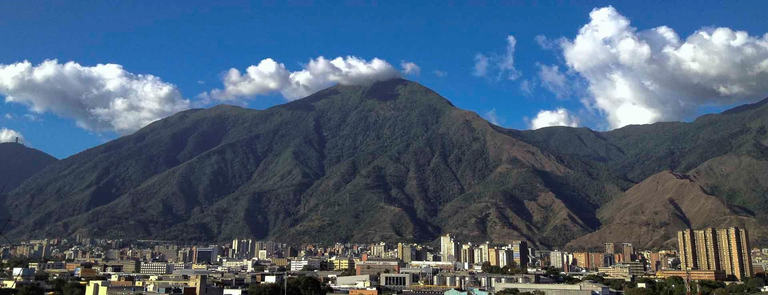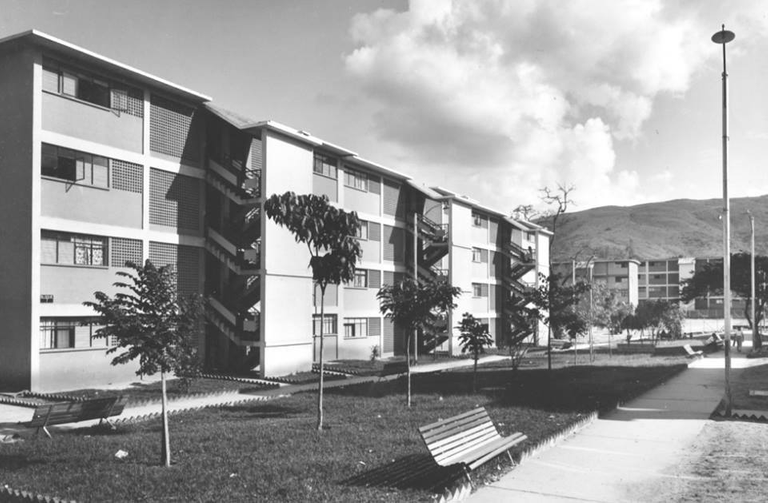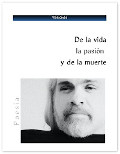
Esta plataforma para mí, es un reto permanente y cada día me trazo nuevas metas que me permiten hurgar en mis capacidades y ampliar mis conocimientos.
Dentro de la literatura, uno de los campos menos explorados por mí ha sido la crónica, pues ni siquiera en mis prácticas periodísticas me acerqué a ella.
La crónica literaria se convertido en un identificador latinoamericano. En un estudio para la Universidad de Medellín, Andrés Alexander Puerta Molina dice lo siguiente:
...la crónica, un género de periodismo narrativo latinoamericano por excelencia, que ha ayudado a la definición y a la promoción de la identidad de los distintos países que van desde río Bravo hasta la Patagonia y que, además, ha brindado significativos aportes a la narrativa del continente. La crónica latinoamericana ha tenido distintos momentos de esplendor que han nutrido a la literatura, desde El Carnero de Juan Rodríguez Freyle hasta el presente en el que una brillante generación se ha encargado de retratar, de forma muy acertada, las distintas realidades que ocurren a diario desde México hasta Argentina.
La crónica, una tradición periodística y literaria latinoamericana
Yo que soy un apasionado de la cultura latinoamericana y un amante de la escritura, no podía dejar pasar la oportunidad de penetrar en este terreno. Y por eso he decidido empezar un espacio regular para mis crónicas personales, al cual llamaré simplemente Chronos en honor a la personificación griega del tiempo, porque en definitiva es el tiempo de cada quien el que se ve retratado en estas historias.
Es mi intención acá desarrollar la habilidad en ese lenguaje y traer de esas muchas historias que a uno le ha tocado vivir y que siente que pueden ser buena materia prima para contar -como decía Gabriel García Márquez- “un cuento que es verdad”.
This platform is a permanent challenge for me, and every day I set new goals that allow me to delve into my abilities and expand my knowledge.
Within literature, one of the least explored fields for me has been the chronicle, because not even in my journalistic practices did I approach it.
The literary chronicle has become a Latin American identifier. In a study for the University of Medellin, Andres Alexander Puerta Molina says the following:
...the chronicle, as a genre of narrative journalism, Latin American par excellence, which has helped define and promote the identity of the various countries that go from Rio Bravo to Patagonia and that has also provided significant contributions to the continent’s narrative. The Latin American chronicle has had different moments of splendor that have nurtured literature, from El Carnero by Juan Rodríguez Freyle to the present in which a brilliant generation has been in charge of portraying, in a very correct way, the different realities that occur daily from Mexico to Argentina.
La crónica, una tradición periodística y literaria latinoamericana
As a passionate of Latin American culture and a lover of writing, I could not pass up the opportunity to explore this ground. And that is why I have decided to start a regular space for my personal chronicles, which I will call simply Chronos in honor of the Greek personification of time, because ultimately it is the time of each person that is portrayed in these stories.
It is my intention here to develop the ability in that language and bring many of those stories that one has had to live and that I feel can be good raw material to tell - as Gabriel García Márquez said - "a tale that is true".


Catia y el azul
La última mudanza había sido de Berlín a Moscú, en 1973, casi tres años antes. Pero esta era diferente, era volver a la patria, al país de origen, a todo que aquello que había idealizado. Porque debo confesar que con mis quince años de edad y la última mitad vivida en Europa, eran pocos los recuerdos claros que yo tenía de Venezuela.
En esa mudanza anterior había llorado al ver perderse los colores que animaban a la capital alemana y en su lugar ocupar el gris de las edificaciones que predominaba en la arquitectura clásica de los viejos edificios moscovitas. Gris que destacaba más aún por estar a punto de entrar la primavera, pero aún el piso mantenía ese color oscuro del deshielo del rudo invierno ruso.
Este cambio era completamente diferente. En los últimos siete años no había visto yo un cielo tan azul, un sol tan radiante, unas nubes tan blancas, como las que adornaban las inmediaciones del aeropuerto que nos abrió la puerta a nuestro país.
Los reencuentros familiares, los amigos de la familia que se acercaron a darnos la bienvenida, lograron subir más aún la temperatura que predominaba en el ambiente y que me traían a la memoria lo que es clima del Caribe, del trópico.
La noche se hizo cercana, entre la espera del equipaje, los abrazos y el viaje a Caracas. Por lo tanto quedó pendiente para el día siguiente, un gran encuentro de la familia. En la distribución “temporal” de la familia, a mí me tocó quedarme con unos tíos en el oeste de la ciudad, en un sector conocido como “Catia” (Sí, inspirado en el nombre Katia, precisamente por una rusa), allí en una urbanización llamada “Simón Bolívar”, pero que en la voz de la población seguía llamándose “Ciudad Tablitas” por el nombre del barrio que allí se había erguido con anterioridad y el cual fue demolido para dar paso a la construcción de una urbanización de edificios pequeños.
En mi infancia iba con frecuencia a visitar a esos tíos y muchas personas allí me conocían. Así que esa noche hubo cierto revuelo, al saber que había llegado el familiar que venía de Rusia. Ese mismo día me tocó empezar a contar de la vida en ese enigmático país conocido como la Unión Soviética, la vida detrás de la “cortina de hierro”.
Había hechos de los que yo narraba que a las personas le resultaban increíbles, como el hecho de que en los más de siete años que estuvimos en esos países, nunca tuvimos noticias de delincuencia, cómo prácticamente todos los servicios, incluyendo la salud y educación eran de las mejores del mundo y además de eso, completamente gratis.
Entre historias y canciones (pues con antelación ya todos sabían que yo cantaba y tocaba varios instrumentos) llegó la medianoche. Mi primera noche caraqueña después de tanto tiempo, rodeado de quienes siempre fueron mi familia, pero que separados por miles de kilómetros de distancia, no habíamos podido compartir una noche bajo el mismo techo.
A las seis y media de la mañana, recién había despuntado el sol, cuando unos estruendos desconocidos para mí en aquel entonces, me hicieron sobresaltar. Uno, dos, tres cuatro… Le siguieron los sonidos característicos del caos y la confusión, acompañados del grito: ¡Mataron a Márquez!
Mi sobresalto fue único y corrí a la cocina, donde mi tía Mercedes preparaba el más cremoso café con leche que se pudiera uno imaginar, junto a nuestro pan venezolano: las arepas. Fue ella la encargada de explicarme la situación.
- ¡Eso fue un ajuste de cuentas, porque dicen que ese muchacho estaba metido en drogas!
Y agregó tajante - ¡muchacho, aléjate de esa ventana! - mientras yo trataba de ver algo del movimiento afuera.
El desayuno fue tan imponente, que me pareció que se trataba de “una ocasión especial”, pero después pude corroborar que esa era la manera de servir de mi tía.
A los pocos minutos, mi tío Ángel, junto a mis primos y yo, nos dábamos banquete con el tradicional desayuno. Al rato me alistaba para salir a mi primer viaje por la ciudad, íbamos a ir a la casa de otra tía mía, Deyanira, donde estarían alojados por un tiempo mis padres. Allí también se quedó esa noche mi hermana con mi sobrino de un año, mientras preparaba su viaje para Maracaibo a donde iría a vivir con su esposo.
Mi cuñado y yo tomamos el autobús para un pequeño viaje, que por las características climáticas, por los tonos de colores que vi y por todas esas características que tienen las ciudades y la gente del Caribe, se me quedó grabado en la memoria con una película de alta definición.
El recorrido lo hicimos en un viejo autobús Blue Bird, cuyas ventanas eran tan abiertas que daba la impresión que ibas en un vehículo descapotable.
El sol más radiante que nunca iluminaba una ciudad pujante, llena de colores que yo no recordaba que existían, bordeada esta urbe por una hermosa montaña verde que la hace situarse en un valle y con un cielo azul intenso como pocos.
¡Un azul que ya Márquez no volvería a ver!


Ciudad Tablitas - 1954
Catia and a blue
The last move had been from Berlin to Moscow, in 1973, almost three years earlier. But this one was different, it was to return to the homeland, to the country of origin, to all that I had idealized. Because I must confess that with my fifteen years of age and the last half lived in Europe, there were few clear memories I had of Venezuela.
In that previous move I had cried when I had seen the colors that animated the German capital fade away and instead occupied the gray of the buildings that predominated in the classical architecture of the old Moscow buildings. Gray that stood out even more as spring was about to enter, but still the floor maintained that dark color of the thaw of the harsh Russian winter.
This change was completely different. In the last seven years I had not seen such a blue sky, such a radiant sun, such white clouds, as those that adorned the surroundings of the airport that opened the door to our country.
The family reunions, the friends of the family who came to welcome us, managed to raise even more the temperature that prevailed in the atmosphere and that brought to my memory what is the climate of the Caribbean, of the tropics.
The night became close, between waiting for the luggage, the hugs and the trip to Caracas. Therefore, a big family reunion was pending for the following day. In the "temporary" distribution of the family, I had to stay with some uncles and aunts in the west of the city, in a sector known as "Catia" (Yes, inspired by the name Katia, precisely because of a Russian woman), in an urbanization called "Simon Bolivar", but that in the voice of the population was still called "Ciudad Tablitas" (Small tables city) by the name of the barrio that had previously stood there and which was demolished to make way for the construction of an urbanization of small buildings.
In my childhood I often went to visit those uncles and many people there knew me. So that night there was some commotion, knowing that the relative from Russia had arrived. That very day it was my turn to start telling about life in that enigmatic country known as the Soviet Union, life behind the "iron curtain".
There were facts that I narrated that people found unbelievable, like the fact that in the more than seven years we were in those countries, we never had news of crime, how practically all services, including health and education were among the best in the world and besides that, completely free.
Between stories and songs (since everyone knew beforehand that I sang and played several instruments) midnight arrived. My first night in Caracas after so long, surrounded by those who had always been my family, but separated by thousands of miles of distance, we had not been able to share a night under the same roof.
At half past six in the morning, the sun had just risen, when some unknown noises for me at that time, made me startle. One, two, three, four... The characteristic sounds of chaos and confusion followed, accompanied by the cry: They killed Marquez!
My shock was unique and I ran to the kitchen, where my aunt Mercedes was preparing the creamiest coffee with milk one could imagine, along with our Venezuelan bread: arepas. She was in charge of explaining the situation to me.
- That was a settling of scores, because they say that boy was involved in drugs!
And she added sharply - boy, get away from that window! - while I tried to see some of the movement outside.
The breakfast was so imposing, that I thought it was "a special occasion", but later I could corroborate that this was my aunt's way of serving.
A few minutes later, my uncle Angel, along with my cousins and I, were feasting on the traditional breakfast. After a while I got ready to leave for my first trip around the city, we were going to go to the house of another aunt of mine, Deyanira, where my parents would be staying for a while. My sister was also staying there that night with my one year old nephew, while she was preparing her trip to Maracaibo where she would go to live with her husband.
My brother-in-law and I took the bus for a short trip, which because of the weather, the colors I saw and all those characteristics of the cities and people of the Caribbean, remained engraved in my memory like a high definition movie.
The tour was done in an old Blue Bird bus, whose windows were so open that it gave the impression that you were riding in a convertible vehicle.
The sun more radiant than ever illuminated a thriving city, full of colors that I did not remember existed, bordered by a beautiful green mountain that makes it sit in a valley and with a deep blue sky like few others.
A blue that Marquez would never see again!

Si es de tu agrado este estilo y quieres sumarte a la creación de crónicas literarias, te invito a usar la etiqueta #chronos para la misma.
If you like this style and want to join the creation of literary chronicles, I invite you to use the hashtag #chronos for it.


Descarga el poemario de @Ylich"De la vida, la pasión y de la muerte"¡Haz clic aquí! |  |
|---|

If you don't have an account at Hive yet, I invite you to read my post My Hive Testimony || Mi testimonio Hive
Si aún no tienes cuenta en Hive te invito a leer mi publicación My Hive Testimony || Mi testimonio Hive

Esta publicación ha recibido el voto de Literatos, la comunidad de literatura en español en Hive y ha sido compartido en el blog de nuestra cuenta.
¿Quieres contribuir a engrandecer este proyecto? ¡Haz clic aquí y entérate cómo!
Saludos.Pude apreciar el retorno de un viajero; quien desde tierras nubosas y frías-el clima quise decir- regresa a Catia. Viví cerca -en la Cañada de la Iglesia(23 de Enero)-y siendo adolescente vendía flores y artesanías en el antiguo mercado de Catia. Lamentablemente siguen muchos Márquez dejando la vida como su fuera un maligno suspiro, en esta inmensa barriada caraqueña.
Hi ylich,
Visit curiehive.com or join the Curie Discord community to learn more.
Nuestras coordenadas:
Saludos amigo, me parece esta una excelente publicación. Para mi resulta bastante interesante leer sobre las vivencias de alguien que vivió en primera persona aquellas épocas, mucho más si entre sus experiencias esta haber vivido en países del bloque socialista. Seguramente estaré visitando sus siguientes crónicas, nos estaremos leyendo.